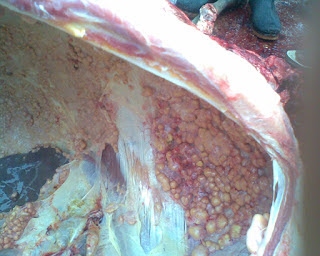
The country’s first stool bank, OpenBiome, is now selling capsules of fecal matter to treat life-threatening Clostridium difficile, or C. diff, infections.The $635 pill-based therapy, a type of fecal transplant, is highly effective against the difficult-to-treat gastrointestinal infection, according to results of a pilot study. A single dose, which includes a whopping 30 pills, cured 70 percent of patients. A second dose bumped the success rate up to 94 percent. The treatment, currently being sold only to doctors, may offer an easier alternative to other effective fecal transplant routes, namely colonoscopies, nasal tubes, and enemas.
C. diff infections sometimes take root while a patient is on antibiotics, which kills off and disrupts the patient's normal, healthy gut microbiome. In antibiotics’ wake, C. diff bacteria that usually reside quietly in the gut can run amok and produce toxins. Fecal transplants can stamp out the infection by replacing a patient’s disrupted gut microbial community with the gut microbes from a healthy patient, transferred via feces.
Read more ;http://arstechnica.com/science/2015/11/635-poop-pills-cure-deadly-gastrointestinal-infection/


 Its the weekend and a great time for a makeover for your pets; wash,shampoo and groom them. Check out these funny grooming options ; photo credit= internet.
https://veterinarymedicineechbeebolanle-ojuri.blogspot.com/2019/01/veterinary-medicine-emerging-viruses-in.html
Its the weekend and a great time for a makeover for your pets; wash,shampoo and groom them. Check out these funny grooming options ; photo credit= internet.
https://veterinarymedicineechbeebolanle-ojuri.blogspot.com/2019/01/veterinary-medicine-emerging-viruses-in.html







